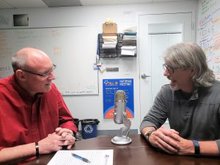Found 8 resources.
0
0
0
Federal safety net programs are intended to protect the most vulnerable Americans—such as the elderly, people with severe disabilities and young children. Housing assistance plays a critical role in the safety net, providing decent, safe, and affordable housing for millions of extremely low-income and vulnerable families—though, because it is not an entitlement like other federal safety net programs, the assistance available falls far short of the need. Housing subsidies free families to spend on other essentials like healthy food, education, and health care.
Topics: Asset building, Dual-generation, Education, Housing, Mental health, Mobility, Partnerships, Research, Workforce development
 Shared by Housing Is
on Apr 2, 2019
Shared by Housing Is
on Apr 2, 2019 0
0
0

Asset-based community development (ABCD) is a large and growing movement that considers local assets as the primary building blocks of community development, social capital, and health and well-being. Ron Dwyer-Voss, MA, the Owner of Pacific Community Solutions, who also happens to be a long-time friend of podcast host Peter Eckart, joined the show to discuss how ABCD draws on existing strengths of local residents, associations, and institutions to build stronger, healthier, and more sustainable communities. He shared strategies, tools, and examples of how ABCD can be used to engage community...
Topics: Asset building, Community development, Health, Partnerships
 Shared by Housing Is
on Mar 19, 2019
Shared by Housing Is
on Mar 19, 2019 0
0
0

In 2016, the health system teamed with Spartanburg Community College and the National Center for Construction Education and Research, a nonprofit that provides global training and certification. Together, the three entities began offering construction skills training to area residents.
Topics: Asset building, Health, Low-income, Partnerships, Workforce development
 Shared by Housing Is
on Mar 11, 2019
Shared by Housing Is
on Mar 11, 2019 0
0
0
Safe, affordable housing enables low-income people to climb up the income ladder and achieve the American Dream.
Topics: Asset building, Housing, Mobility, Partnerships, Research
0
0
0
As the Trump Administration continues to encourage states to take Medicaid coverage away from people who don’t meet a work requirement, a new report describes Montana’s promising alternative: a workforce promotion program that targets state resources toward reducing barriers to work.
Topics: Affordable Care Act, Asset building, Health, Legislation & Policy, Low-income, Medicaid / Medicare, Partnerships, Research, Workforce development
 Shared by Housing Is
on Dec 11, 2018
Shared by Housing Is
on Dec 11, 2018 0
0
0

Some community colleges have found innovative partnerships with their public housing authorities may help combat student homelessness.
Topics: Asset building, CLPHA, Education, Homelessness, Housing, Low-income, Midwest, Pacific Northwest, Partnerships, Post-secondary, Stability, Workforce development
0
0
0

Why do some neighborhoods appear able to launch effective local improvement initiatives, while others are more hampered by fragmentation and mistrust? Why can some communities mobilize diverse constituencies to influence public policy, while others cannot? Answers to these questions may be found in the specific patterns of collaboration that form among community organizations, and between these groups, schools, public agencies, and elected officials, according to MDRC, a preeminent social-policy research organization.
Topics: Asset building, Child welfare, Community development, Data sharing, Dual-generation, Education, Family engagement, Funding, Health, Housing, Legislation & Policy, Low-income, Metrics, Midwest, Mobility, Out-of-school time, Partnerships, Place-based, Preventative care, Research, Safety, Stability, Workforce development, Youth
0
0
0
Increasingly, a wide range of entities—housers, educators, cities—are using data sharing as a way to increase effectiveness across systems. Data sharing exemplifies this community of practice’s intent to align systems to improve life outcomes for low-income children. We have many robust examples on the local level and this panel will discuss what data systems beyond local partners can look like and accomplish.
Dennis Culhane, Co-Principal Investigator, Actionable Intelligence for Social Policy, University of Pennsylvania School of Social Policy & Practice
Topics: Asset building, CLPHA, Data sharing, Education, Housing, Low-income, Metrics, Partnerships, Research
 Shared by CLPHA Admin
on Jan 8, 2018
Shared by CLPHA Admin
on Jan 8, 2018 